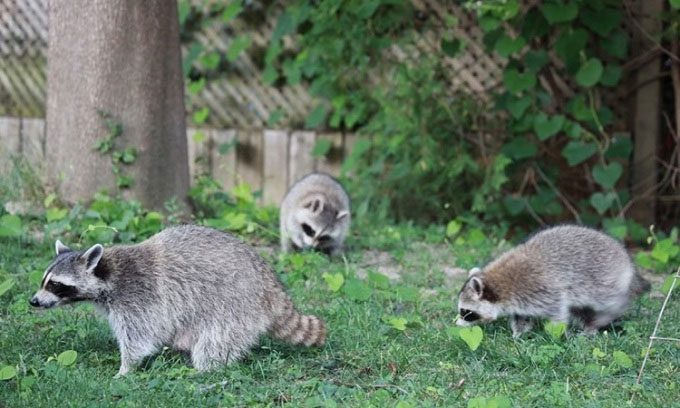Approximately 15,000 raccoons living in southern Belgium are threatening local wildlife and may spread disease.
Belgian forest manager Thierry Petit is struggling to keep up with requests to handle raccoons, a North American species considered a threat to native wildlife in Europe. Authorities admit it is too late to eradicate the entire population of over 50,000 raccoons residing in the southern hills of Belgium. Therefore, Belgium may have to coexist with this invasive species while finding ways to control their numbers and protect the vulnerable local flora and fauna from predation or disease, AFP reported on September 4.

Raccoons are adaptable omnivores. (Photo: Richard Burlton).
“Currently, we cannot address all requests” Petit, who works in the Barriere Mathieu forest near Tenneville, shared. “We will not respond if someone reports raccoons in their garden. We will reduce the raccoon population if they threaten the black stork or the grey wagtail.”
Indigenous to North America, raccoons are agile omnivores well adapted to suburban life and are nicknamed “trash pandas.” Raccoons have invaded Belgium from two directions: one group spread from Germany, where they were introduced by Americans for recreational hunting and fur trading. The other group arrived from France, where they settled around the American airbase in the Aisne region in the 1960s.
“Since around 2005, we have started finding tracks along waterways and dead raccoons hit by cars, indicating that the population is growing. They are also thriving due to the mild winters,” biologist Vinciane Schockert shared.
Schockert is part of a research team seeking to determine the impact of raccoons on local species. Raccoons are excellent climbers and foragers, often breaking into homes. Along with the common sandpiper, brown and grey wagtails that nest in low-lying river areas have become easy targets for raccoons.
Authorities in the southern Belgian region of Wallonia are planning to address the raccoon issue. “Raccoons are one of the top five causes of biodiversity decline worldwide. Currently, raccoons are spreading across Belgium to the extent that we must learn to coexist with them while managing their populations in areas where they cause the most problems and preventing their further spread,” said Celine Tellier, head of the environmental agency in Wallonia.
Local governments are discussing methods to cull raccoons with animal rights organizations. Armed hunters often set traps to lure raccoons into cages before shooting them.


















































